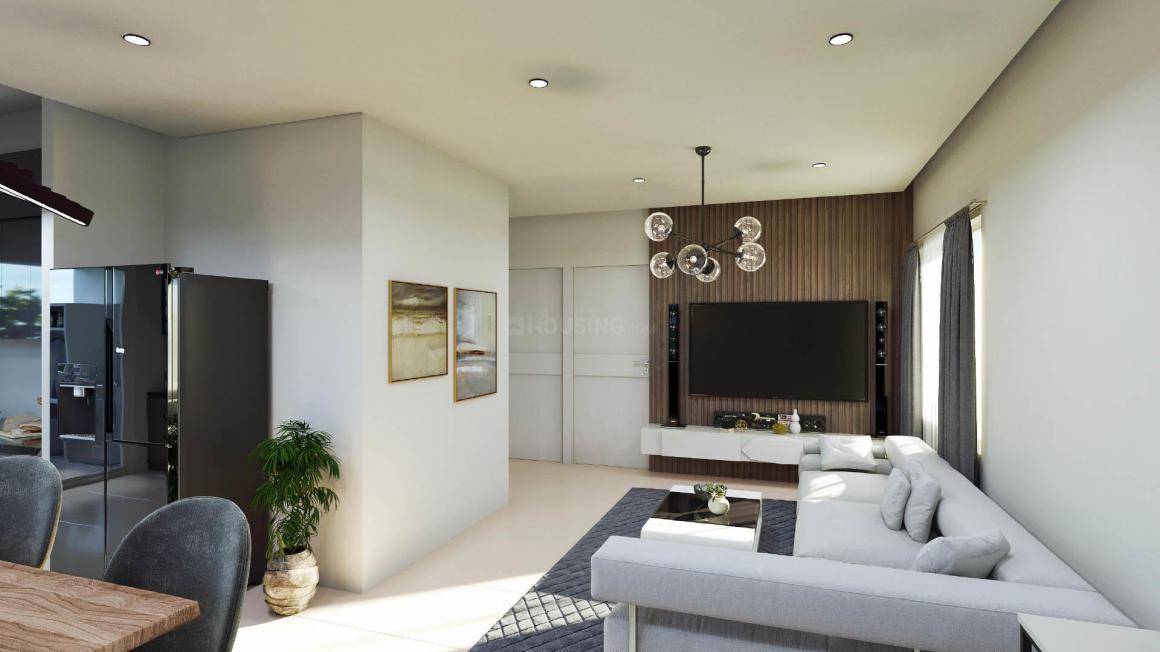In this guide, we will uncover the intricacies of real estate open houses, examining their purpose, benefits, planning strategies, execution tactics, success stories, and future trends. Let’s embark on a journey to unveil the keys to orchestrating successful and impactful real estate open house showcases.

Things we covered for you
Definition and Significance
The term “Real Estate Open House” refers to a strategic event in the property market where a listed property is showcased to potential buyers in an open and welcoming setting. These events are pivotal in providing a firsthand experience of the property, allowing prospective buyers to explore and connect with the space.

Significance
Real estate open houses are more than mere property walkthroughs; they are opportunities for sellers and real estate agents to present a curated and compelling narrative about a property. The significance lies in the ability of these events to create a dynamic environment that fosters direct engagement between buyers and sellers, ultimately influencing the decision-making process.
Purpose of Open House in Real Estate
Showcase Properties
Real estate open houses serve as a captivating stage for properties to take center spotlight, providing potential buyers with an immersive experience. Here, the property is not merely a listing but a living space waiting to be embraced. The primary goal is to showcase its unique features, layout, and ambiance in a way that goes beyond static images on a listing page.
Read: आपले घर छान बनविण्यासाठी,सजावटीचे 5 उपाय
- Immersive Visualization: Open houses allow potential buyers to walk through the property, explore its nooks and crannies, and envision themselves living in the space. The tactile experience of being physically present enhances their understanding of the property, making it more than a set of rooms but a potential home.
- Highlighting Unique Features: Whether it’s a charming fireplace, a state-of-the-art kitchen, or a breathtaking view, an open house provides the perfect platform to emphasize the property’s distinctive elements. This showcasing goes beyond the photographs and descriptions, offering a firsthand encounter with the property’s character.
Build Buyer Connections
Beyond showcasing the property, real estate open houses are equally about building meaningful connections with potential buyers. These events serve as a bridge between the seller and the prospective homeowner, fostering relationships that can be crucial in the decision-making process.
- Direct Interactions: Open houses offer a rare opportunity for face-to-face interactions between buyers and sellers. Real estate agents can engage with visitors, understand their preferences, and address queries in real-time. This direct engagement helps in building trust and rapport, elements essential in the often intricate world of real estate transactions.
- Establishing Trust and Confidence: Buyers often make one of the most significant decisions of their lives when purchasing a property. Open houses provide an environment where they can express their concerns, seek clarifications, and receive immediate responses. This direct communication contributes to the establishment of trust and confidence, vital components in closing successful real estate deals.
Benefits of a Real Estate Open House
Increased Visibility
One of the primary advantages of hosting a real estate open house is the substantial increase in visibility for the listed property.
- Broader Audience Reach: Open houses attract a diverse range of potential buyers, neighbors, and even individuals who might not have been actively searching for a property but are intrigued by the event. This broadens the reach of the property beyond traditional marketing channels.
- Buzz in the Local Market: The event itself generates a buzz in the local market. As people attend and share their experiences, it creates word-of-mouth publicity, which is a powerful and organic way to spread information about the property. Additionally, the increased foot traffic can attract the attention of passersby who might have overlooked the listing online.
Facilitates Buying Process
Real estate open houses play a pivotal role in streamlining the buying process for potential homebuyers.
Read: Working from Home During The COVID-19 Pandemic
- Immediate Access: Unlike scheduled private viewings, open houses provide immediate access to the property without the need for prior appointments. This accessibility is particularly beneficial for buyers with busy schedules or those who want to make quick, informed decisions.
- Enabling Visualization: Potential buyers can physically experience the property, allowing them to visualize their life in the space. This hands-on approach goes beyond the limitations of virtual tours or static images, offering a more comprehensive understanding of the property’s layout, flow, and overall feel.
- Acceleration of Decision-Making: The interactive nature of open houses often accelerates the decision-making process. Buyers can ask questions, seek clarifications, and receive immediate responses, eliminating uncertainties and expediting their journey from interest to decision.
Planning a Real Estate Open House
Property Setup
Successful real estate open houses hinge on thoughtful and strategic property setup, creating an environment that captivates potential buyers and leaves a lasting impression.
Read: लीप वर्ष,सत्यता विरुद्ध कल्पना
- Staging for Appeal: Effective staging involves arranging furniture, decor, and accessories in a way that showcases the property’s potential. Each room should convey a purpose, allowing visitors to envision themselves living in the space. Neutral colors, decluttered spaces, and well-lit rooms contribute to a universally appealing setting.
- Seamless Flow for Tours: The layout of the property should facilitate a smooth and logical flow for guided tours. This ensures that visitors can explore each area without feeling confined or missing essential features. Strategically placed signs or guides can assist in directing traffic and highlighting key selling points.
- Attention to Detail: Every detail matters, from the cleanliness of the property to minor repairs. Attention to detail communicates a sense of care and maintenance, assuring potential buyers that the property has been well looked after. Well-maintained exteriors, manicured landscapes, and inviting entryways contribute to the overall appeal.
Marketing Strategies
Effective marketing is crucial for maximizing the impact of a real estate open house, reaching a broad audience, and generating excitement around the property.
- Utilizing Online Platforms: Harness the power of online platforms to create anticipation. Utilize real estate websites, social media channels, and online forums to promote the event. Engaging content, high-quality photos, and enticing descriptions can pique interest and encourage attendance.
- Offline Promotion: In addition to online efforts, traditional marketing methods remain valuable. Flyers, signage, and neighborhood canvassing can inform local residents and attract potential buyers who might be in the vicinity. Collaborating with local businesses or community centers can further extend the reach.
- Leveraging Social Media: Social media is a dynamic tool for creating a buzz. Create engaging posts, share behind-the-scenes glimpses of the property preparation, and use relevant hashtags to increase visibility. Consider running targeted ads to reach specific demographics.
Executing a Real Estate Open House
Guided Tours
The success of a real estate open house heavily relies on the execution of engaging and informative guided tours, providing potential buyers with a firsthand experience of the property.
Read: The Best Places to Spot Celebrities in Mumbai
- Structured and Informative: Guided tours should follow a structured itinerary, ensuring that visitors have the opportunity to explore every aspect of the property. Knowledgeable guides or real estate agents lead the tours, highlighting key features, answering questions, and addressing any concerns that may arise during the walkthrough.
- Interactive Engagement: Encouraging interaction during the tour enhances the overall experience. Buyers should feelcomfortable asking questions, expressing preferences, and seeking clarification on aspects that matter to them. Interactive elements, such as demonstrations of unique property features, add an extra layer of engagement.
- Showcasing Lifestyle: Guided tours go beyond showcasing the physical attributes of the property; they also aim to convey the lifestyle it offers. For example, if the property has a stunning outdoor space, the tour may emphasize the potential for outdoor entertaining or relaxation.
Q&A with Agents/ Owner
An integral component of real estate open houses is the opportunity for potential buyers to engage in meaningful Q&A sessions with real estate agents or homeowner.
- Expert Insights: Real estate agents or the property owner play a crucial role in providing expert insights into the property, neighborhood, and the overall market. Being well-prepared with relevant information about the property’s history, recent renovations, and market trends contributes to establishing credibility.
- Transparent Communication: The Q&A session is not just about providing information; it’s an opportunity to build trust. Buyers appreciate honesty and openness regarding any concerns they may have. Agents or owners should be equipped to address queries about the property’s condition, potential renovations, neighborhood amenities, and other relevant aspects.
- Building Trust: Real estate transactions involve significant decisions, and establishing trust is fundamental to ensuring buyers feel confident in their choices. Personal interactions during the Q&A session contribute to a sense of transparency and reliability.
Real Estate Open House: Challenges & Solutions

Crowd Management
Real estate open houses, while crucial for showcasing properties, often present challenges in managing large crowds. Effective crowd management is essential to ensure a positive experience for both potential buyers and the property owner.
Challenges:
- Overcrowding: Large turnouts can lead to overcrowded spaces, making it challenging for visitors to explore the property comfortably.
- Uneven Flow: Uneven distribution of visitors can create bottlenecks in certain areas, causing frustration and hindering the overall experience.
Solutions:
- Scheduled Tours: Implement scheduled guided tours to control the number of people in the property at any given time. This ensures a more organized and manageable flow.
- Signage and Guidance: Use clear signage to direct the flow of traffic and guide visitors through the property systematically. Assign staff or guides strategically to assist with directions.
Effective Communication
Clear and effective communication is vital during real estate open houses, as it directly impacts the understanding and perception of the property. Challenges in communication can arise at various levels and require thoughtful solutions.
Challenges:
- Misinformation: Inaccurate or incomplete information can lead to misconceptions and dissatisfaction among potential buyers.
- Language Barriers: In diverse markets, language differences may impede effective communication, potentially causing misunderstandings.
Solutions:
- Agent Training: Thoroughly train real estate agents or representatives on all aspects of the property to minimize the risk of providing misinformation.
- Multilingual Support: If applicable, provide multilingual materials and ensure that there are representatives who can communicate effectively in different languages to cater to a diverse audience.
The Superiority of Online Listings Over Open Houses in Indian Real Estate
Although a real estate open house is generally the most promising method of finding interested buyers quickly, when it comes to Indian real estate, the traditional approach of hosting open houses is being overshadowed by the digital prowess of online listings. Here’s why leveraging the digital avenue proves to be a superior strategy for sellers looking to make a significant impact in the market.
1. Limitless Reach: Shattering Geographical Constraints
India’s vast and diverse geography often poses challenges for traditional open houses. Enter online listings, breaking free from these confines and allowing your property to captivate potential buyers not just within different cities but on a global scale. The capacity to attract a diverse array of interested parties significantly amplifies the prospects of finding the perfect buyer for your property.
2. Budget-Friendly Brilliance: Maximizing Impact on a Shoestring
The orchestration of open houses involves intricate logistics and expenses, from event coordination to promotional efforts. On the flip side, online listings present an economically savvy alternative. You can spotlight your property to a broad audience without the need for elaborate setups or additional financial commitments. It’s a wallet-friendly yet impactful strategy, catering to sellers of all scales.
3. Modern Buyer Convenience: Virtual Journeys and Detailed Disclosures
In an era where modern homebuyers crave convenience and instant information, online listings take center stage. Prospective buyers can embark on virtual tours, intricately exploring every corner of your property from the comfort of their homes. Detailed descriptions, top-notch images, and even virtual walkthroughs contribute to a holistic understanding of your property, enticing discerning buyers.
4. Direct and Swift Interaction: Real-Time Engagement Brilliance
The immediacy of online communication reshapes the game. Rather than waiting for scheduled open house events, online listings facilitate immediate engagement. Buyers can seamlessly connect with sellers, firing off questions and seeking clarifications promptly. This direct interaction enhances transparency and expedites the decision-making process, benefitting both parties involved.
5. Data-Driven Decision Making: Empowering Sellers with Informed Choices
In the realm of real estate, knowledge is prowess, and online listings provide sellers with a trove of data and analytics. Uncover market trends, analyze pricing strategies, and fine-tune your approach based on real-time insights. This data-driven decision-making process positions sellers as astute and strategic players in the cutthroat real estate market.
6. Global Exposure: Casting a Wide Net Across the World
Online listings thrust your property into the global limelight. This level of visibility far surpasses the local reach of open houses. The potential to attract international buyers broadens the spectrum of opportunities, transforming your property into a coveted commodity in the expansive global real estate market.
7. Building Trust in the Digital Arena: Credibility in Online Platforms
Reputable online listing platforms offer a credibility that can be elusive through traditional methods. Positive reviews, ratings, and the authenticity of these platforms contribute to fostering trust among potential buyers. In an age where online presence is paramount, this credibility becomes a considerable asset for sellers.
The evolving dynamics of real estate in India demand a strategic shift towards digital solutions, and online listings stand out as the superior choice for sellers. The advantages of limitless reach, cost-effectiveness, and direct engagement position online listings as the modern seller’s toolkit. In conclusion, as you embark on your journey to sell your house in India, consider NoBroker as your trusted partner. Seamlessly blending the advantages of online listings with the essence of traditional open houses, NoBroker offers a holistic solution that caters to the demands of the modern real estate landscape. Choose NoBroker for a truly unparalleled open house experience, where the digital and traditional seamlessly converge for optimal results.
Frequently Asked Questions
An open house is an event where a property listed for sale is open for prospective buyers to visit. It typically involves guided tours and allows potential buyers to explore the property firsthand.
Open houses provide an opportunity to showcase your property to a broad audience, increasing visibility. They allow potential buyers to experience the property in person, fostering a deeper connection and potentially expediting the sales process.
Property preparation involves thorough cleaning, decluttering, and staging to highlight its features. Make necessary repairs, enhance curb appeal, and consider professional photography to showcase the property in its best light.
Utilize both online and offline marketing channels. Leverage real estate websites, social media platforms, and local advertising. Create visually appealing promotional materials and consider collaborating with local businesses or communities.
Ensure the property is well-lit, clean, and staged effectively. Offer guided tours, be prepared to answer questions, and provide informative materials. Create a welcoming atmosphere and consider offering refreshments.
Yes, virtual open houses have become increasingly popular. Utilize video tours, live streaming, or 3D virtual tours to showcase the property online. This allows potential buyers to explore the property remotely.
Greet visitors warmly, provide information about the property, and encourage them to explore. Be prepared to answer questions, share key selling points, and collect contact information for follow-up.
Plan scheduled guided tours to manage the flow of visitors. Have additional staff or guides to assist with crowd management. Utilize sign-in sheets to track attendees and gather feedback.
Challenges may include overcrowding, misinformation, or managing diverse visitor expectations. Implement scheduled tours, thorough agent training, and clear signage to address these challenges effectively.
Follow up with potential buyers, gather feedback, and consider making adjustments based on the response. Continue marketing efforts and use the momentum generated from the open house to drive the sale forward.









